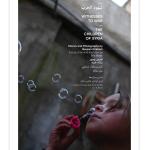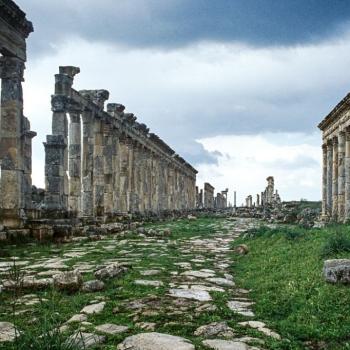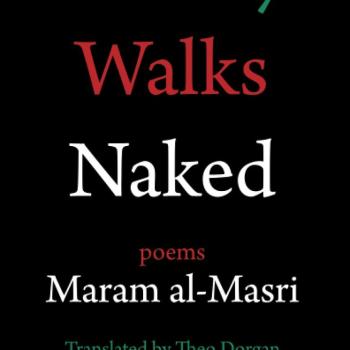For a long time, my favorite myth was that of Medusa’s. The different version, interpretations, how she could be included in a spiritual practice, and also the symbolism, they were all fascinating. However, as I learned more about Arabic mythology and folklore, the story of Zarqa al-Yamama became more interesting.
Just a word of caution here: the story contains graphic descriptions of violence, mass murder, and torture.

The Legend
There are longer and shorter version of her story but, in short, Zarqa was a blue-eyed woman in the Al-Yamana region, in modern-day Saudi Arabia, with a rare gift: she was able to see things in a very long distance. Some versions say she could them from the distance of one week, and others that it was just a day and a night. It is also said darkness enhanced her vision even more.
When a tribe from Yemen were approaching, they hid themselves with trees they carried. This made Zarqa tell her tribe that trees were moving toward them with soldiers hidden behind them. However, no one paid attention to her thinking she was mistaken, even though she was highly respected because of her gift.
When the Yemeni tribe arrived, the massacred all of them. The king managed to escape only to be killed in the mountains by bandits who recognized him. As for Zarqa, her eyes were gorged and then was crucified. Legends say the veins around her eyes were black from using Al Athmad, a type of kohl that’s said to enhance vision, and that she was the first one to use it.

The Message
Why do I like it so much? Because of the message I see in it.
It reminds me that we cannot depend on just one skill, like Zarqa depended just on her exceptional sight. Be it physical, mental, spiritual, or anything else. If that sole ability is put to question, doubt, or is not enough to do whatever we’re trying to do, it’s as good as not having it. Not to mention that we’re being irresponsible.
Thinking more about this, we could also say that Zarqa focused on only strengthening this gift instead of developing more abilities. Besides leading to her downfall and her tribe’s, it also meant a weak practice, lack of responsibility, and even disrespect to herself by reducing herself to that single ability, as if she was just her eyes.
Finally, it may be just me overthinking, but Zarqa’s legends also reminds me of the nazar, an amulet against the evil eye, which is also typically used along with the hamsa for protection and also to ward off the evil eye. It doesn’t mean that the nazar can be used for divinatory purposes, but that it could also offer protection and guidance during divination practices.


















